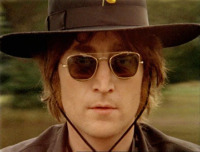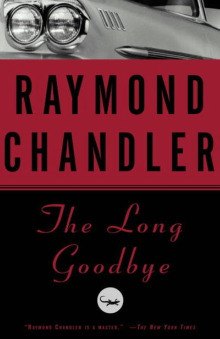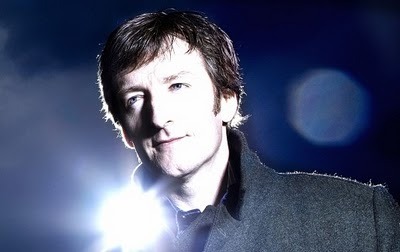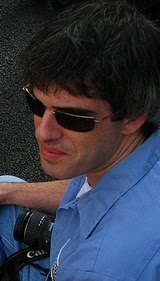Matt Rees's Blog, page 30
January 10, 2010
Book Tours Not Just Ego Tripping
 Not long ago a friend of mine commented that my travels to promote my books must be a great pleasure to me. “You just have to talk about yourself,” he sneered. “You must like that.”
Not long ago a friend of mine commented that my travels to promote my books must be a great pleasure to me. “You just have to talk about yourself,” he sneered. “You must like that.”I ignored the implied insult (until now). But it struck me that people might think book tours are literally ego-trips. Wrong on two counts.
First, it’s only on book tour that people will frequently come up to you and say that you look better in your jacket photo. In Aachen last year, a bookseller pointed at my photo and said, “This handsome man is not you.” In Hamburg, a woman said: “The photo was taken many years ago, no?” How good is that for your ego?
Second, the experience of a new place in the company of people whose concern at that moment is with the world of literature – not politics, finance, or mothers-in-law -- is one of the greatest pleasures imaginable.
Last week I was in the Rhineland city of Cologne at the invitation of the Cologne-Bethlehem Twin Cities Association. Each year on Epiphany (which celebrates the arrival of the Three Kings in Bethlehem, following the star to Jesus’s manger) they arrange a reading related to Bethlehem. That’s because the bones of the Three Kings are kept in Cologne’s astonishing Gothic cathedral. This year they picked “Der Verraeter von Bethlehem,” which you may know as my first Palestinian crime novel “The Collaborator of Bethlehem” (UK title: “The Bethlehem Murders”).
I arrived late at night and did a few interviews in the morning with local press. Then I strolled (if you can really stroll in minus-5 degrees whipping of the river) to the cathedral with Saskia Heinemann, a Cologne-native who works for my Munich publisher Beck Verlag.
Inside, the high vaults of the ceiling were loaded with incense. Three youngsters dressed as the Three Kings were singing “Gloria in Excelsis Deo” to a surprisingly packed congregation. After the priest’s blessing everyone filed behind the altar to the golden shrine where the bones of the Three Wise Men are kept. It glimmered behind a trio of candles marked with the initials of Caspar, Balthasar and Melchior. The cathedral organ played joyously and the bells joined in.
I never take part in any kind of ritual (except for the way I make espresso every morning). As a journalist I watch rituals. As a writer I’m always somehow outside, too, making notes for a way to use such a scene in a future book. This time I found myself moved to be shuffling among the crowd, looking up at the massive columns and stained glass. Somehow I was watching and listening and smelling all the happy Christmases I haven’t had, the unhappy emptiness in which for many people the urge to be a writer is nurtured. But that’s a subject for another time….
Cologne was almost entirely destroyed in WWII. Miraculously the cathedral suffered little damage. The town’s collection of beautiful Romanesque churches (I particularly loved Gross St. Martin) were rebuilt from what remained. Out of reach of the bombs, beneath the town hall square, the oldest synagogue in Europe was recently discovered. I watched through the side of the marquee where the remains are being unearthed by a freezing group of archeologists.
In the traditional beerkeller Frueh, I warmed up with leberknoedel soup and Haemchen, which is essentially the upper back leg of a pig, boiled. I peeled away the layers of fat, white as an Englishman’s tummy, and a large burnt-umber glob which was apparently clotted blood. Then I put away a good few pounds of delicious, salty, soft ham.
Before my reading that night at the Ludwig bookshop in the main station, Miriam Froitzheim arrived from nearby Aachen with a consignment of Printen, the best cookies in Germany. They’re sweetened with honey, not sugar, and covered in a rich chocolate.
The reading was a welcome opportunity to discuss my first novel – which sometimes seems like ancient history to me, as I’ve written four more (one still in manuscript form) since then. Still it was only published in English in 2007 and, in Germany, two years ago.
I dined with some of the bookshop staff, and Udo Hombach, the retired music teacher who read a couple of chapters from my book in German for the audience. An aficionado of churches built by the last Kaiser (several in the Rhineland, and a couple of notable ones in Jerusalem, including the Ascension Church where I did a reading recently and admired the massive ceiling mosaic of Kaiser Wili himself) turned artist, Udo produced a handful of colorful mosaic tiles from his waistcoat pocket. His father had gathered them from the ruins of one of the Kaiser’s churches in Berlin after a bombing raid. Now Udo uses them to make mosaics for his gallery. (You can find it Am Roemerturm 15 in Cologne.)
The following day I nipped around the Museum Ludwig in central Cologne. It’s one of the greatest collections of Expressionist art. That was a change from the Renaissance art in which I’ve been immersed of late, and the building itself is light and spacious, a little like the cathedral next door. Even the luggage lockers were avant garde (the numbers were on the inside, so you kind of had to guess...).
Then I zipped off to the airport feeling very content. You see, at my reading, a woman pointed to the author photo on the jacket and said: “You look much better in real life.”
January 8, 2010
The Decade that Dare not Speak its Name
 In the documentary “Imagine,” John Lennon comments that his song “Starting Over” was a message to fans his own age in which he aimed to ask them: “Hey, how’re you? Weren’t the Seventies a drag? Let’s hope the Eighties will be better.”
In the documentary “Imagine,” John Lennon comments that his song “Starting Over” was a message to fans his own age in which he aimed to ask them: “Hey, how’re you? Weren’t the Seventies a drag? Let’s hope the Eighties will be better.”If John had lived on through the Eighties to experience the decade just gone, I’m sure he’d have used a stronger word than “drag” to describe it, and it would’ve been an adjective that came easily to his lips. The noun, however, would’ve been harder to place in that sentence.
What to call the first decade of this century has been the subject of numerous articles, all of which seem to me to reflect a desire ultimately not to name the decade at all. To forget it. To put behind us its litany of disasters (Asian tsunami, Hurricane Katrina), terrorism (9/11, Madrid, London, Bombay, every third city block in Pakistan), war (Iraq, Afghanistan, the intifada) and assorted horrors (Depression, Darfur, Dick Cheney).
Op-eds opine about whether to call these 10 years the “Aughts” (an American-English misapplication of the word “nought”) or the “Naughties” or the “Zeroes” or the “Ohs.” But no one seems able to name the decade authoritatively.
That desire to forget suggests to me that the secrets of this last decade – the nastiness lurking beneath its ugly surface, the things we’d like to escape simply by refusing to name even the time in which they took place – will be perfect material for fictionalized history in years to come.
I’m thinking in particular of the kind of books James Ellroy has written about the Sixties and Seventies or David Peace about Britain in the Seventies. In “American Tabloid,” “The Cold Six Thousand” and “Blood’s a Rover,” Ellroy mined the suspicions we all had that Kennedy was really a poonhound murdered by the mob with the FBI’s connivance, that Martin Luther King went pretty much the same way, and that a group of drug-taking, pinko-fearing psychos were the engine of history, rather than people like John Lennon.
The first decade of this century seems to me prime Ellroy territory. Halliburton, Blackwater, rendition, the Patriot Act, the Department of Homeland Security all seem geared toward the secret, second history that makes Ellroy’s novels so fascinating. And the characters? Wouldn’t you like to know what really drove the recovering addict who stole the world, and what he heard from the tight lips of Uncle Dick?
In the case of Ellroy’s style, which involves using real public figures, writers have to wait for them to die, so that they can’t sue. That could hold things up. My money is on W living to be a hundred and being laid to rest in a casket made out of one of the last trees, while bloggers tweet their tributes directly into our “iFrontalcortexes.” (If I’ve violated an Apple trademark here, I apologize. Sorry, iApologize.)
So I’ve tried to get rolling on the job of fictionalizing this decade early – to show, through the prism of fiction, what really happened, and what the newspapers missed.
My series of Palestinian crime novels is intended to show the reality of life in the West Bank and Gaza during the intifada. To unveil the tribal conflicts and the battles over corrupt cash that truly dictated the course of the “uprising.” To contrast with coverage by news journalists who only got at the tip of the real meaning when they portrayed it as a struggle over a “peace process.”
I used real characters – their names changed either to protect them from attack, or to protect me and my sources from reprisals and law suits – to show the very things that journalists, who use “real” named figures in their work, failed to demonstrate.
Next month, the fourth book in the series will be out. THE FOURTH ASSASSIN takes my Palestinian sleuth Omar Yussef abroad for the first time — to New York. My aim is to examine the way the West looks at Muslims and how Muslims become marginalized or turn to extremism. To confront what we all know to be the most important issue of the decade that dare not speak its name.
You won’t find Dick Cheney in the book. But his fingerprints are all over it.
January 3, 2010
Outrage: Raymond Chandler in the trash
 The last decade has been one of outrage piled upon outrage, from 9/11 to the wars in Afghanistan and Iraq, on to Hurricane Katrina, the Asian tsunami and the smart-ass bankers who thought they ruled the world they were in the process of destroying. On the first day of the new decade I was faced with something less outrageous, perhaps, but somehow even more puzzling than any of these things.
The last decade has been one of outrage piled upon outrage, from 9/11 to the wars in Afghanistan and Iraq, on to Hurricane Katrina, the Asian tsunami and the smart-ass bankers who thought they ruled the world they were in the process of destroying. On the first day of the new decade I was faced with something less outrageous, perhaps, but somehow even more puzzling than any of these things.I was walking along a street near my home in Jerusalem with a friend. A few paperbacks had been dropped on the ground by a dumpster. I glanced down. "That can't be," I thought. Then, aloud, I said: "You're kidding me."
Someone had thrown out "The Long Goodbye." Someone had put Raymond Chandler in the trash, with a few highly disposable beach-reading tomes. I picked it up gently.
For me this is the greatest American novel of the last century, yet it was sitting alongside the kinds of holiday reading people tend to ditch as soon as they've skimmed to the "exciting" conclusion.
Chandler would've raised one of his wry eyebrows, or perhaps one of the gimlets that appears as a motif in "The Long Goodbye." He knew what people thought of his work--those who hadn't read it at least. Not real literature, genre stuff. People say the same thing to me sometimes, until they read my books. Chandler once wrote that as many bad "literary" novels are written as there are bad crime novels, but the bad literary novels don't get published. (One might note that this no longer seems true, but you get his point: people thought his books were trash, like the genuine trash that was sold alongside it.)
Why's his novel so good? Many reasons, not least of which is Chandler's astonishing way with an image. Try this one: a beautiful woman has just walked into a bar where sleuth Marlowe awaits a client. "It seemed to me for an instant that there was no sound in the bar," Chandler writes, "that the sharpies stopped sharping and the drunk on the stool stopped burbling away, and it was like just after the conductor taps on his music stand and raises his arms and holds them poised."
You don't even have to be a male who once sat lonely in a dingy dive for that sentence to stop everything--the narrative, your breath, your heart. Turns out the woman will be an important character. We don't know it yet for sure, but somehow it's been signaled by the punctuation point of this image.
The friend I was walking with declined at first to take "The Long Goodbye," when I proferred the grubby edition. "I don't really read crime novels," he said.
I shoved it into his midriff. "Read it," I said. "It's a masterpiece."
Then I looked at the other books on the floor. Sometimes around where I live people dispose of the library of a deceased person by placing it on the street for others to pick up. I shook my head. Even when I die, I don't want my copy of "The Long Goodbye" left in the dust and wind of a desert winter.
I want to be buried with it.
January 1, 2010
New year, new blog

One of my favorite Italian writers, Giuseppe di Lampedusa, wrote: "If we want things to stay as they are, things will have to change." So I'm inaugurating my new blog today, to see in the New Year, with the same insightful content, of course, but a good-looking, up-to-date platform with many new features. I call the new blog The Man of Twists and Turns--check it out and you'll see the Homeric reference behind the new title. I won't be posting to my old Blogger site any more; if you've been following me on Blogger, I hope you'll come to the new blog and subscribe. You can also track my posts on Facebook and on Twitter.
December 31, 2009
Beckham guest posts on my crime blog

I don’t like soccer, but I do have a soft spot for David Beckham. Let me explain.
My father-in-law told me the other day he was looking forward to relaxing in front of an American football game. The New York Giants were playing another group of steroidal mutants. Though it was the end of the season, eight teams were still in for the playoffs. “So the games have some meaning,” said Ike.
Of course, I know about meaningless occasions—I covered the Mideast peace process for more than a decade. I saw what Ike was getting at, but it made me think about the way we search for meaning in life.
Which lead me to David Beckham.
Some of you (New York Giants fans, for example) may have no idea who he is. Well, he’s a soccer player. His teams: England, Manchester United, Real Madrid, and presently the LA Galaxy.
Some of you (Giants types, again) may have no idea what the LA Galaxy is. Frankly neither do I. They play soccer. Not so very well, compared to Manchester and Madrid, but well enough to make the final of the US Major League Soccer thingy this year.
What’s a nice boy from the East End of London doing prancing about in a second-rate league in a country that traditionally requires its major sportsmen to be either 300 pounds, 7-feet tall, chewing-tobacco addicts, or toothless? (You know which sports I mean.)
The answer: he’s having a bloody good time.
I made the connection recently while heading through Rome’s Termini rail station. The main concourse was plastered with enormous billboards pushing a particular brand of underwear. Sporting their skivvies, tanned to an unnatural degree, from platform 1 to platform 25: David and his distressingly ferrel wife Victoria, probably the least interesting of the group of singers once called The Spice Girls. (The most interesting ones have, since splitting up the group, appeared on the London stage and claimed to have fathered Eddie Murphy’s love child.)
David, or “Becks” as he’s known to British tabloids, squeezed his chunky little abs and had his hair slicked down for the photos. He looked like Herman Goering’s wet dream. Right down to the strange traces of a Hitlerian mustache and the feathering of pubic hair creeping over the top of his tightie whities.
My first instinct was to be thankful that Israel’s train system is so bad I never find myself on a station concourse, forced to regard the posturings of ill-educated millionaires and their over-priced grape-smugglers.
But as my train rumbled south to Naples, I reconsidered.
I like the fact that Becks has, essentially, put football behind him and gone off to ply his trade in a country where his celebrity is all he has. Only when you’ve left the youthful urge to “compete” can you uncover what really makes you tick. In my case that meant ditching journalism for fiction; for Becks, it was dropping out of European soccer.
He isn’t competing for “meaningful” goals like the European Champions League. He played in the final of the MLS, but to most of the world’s soccer buffs that’s somewhat less important than women’s beach soccer.
It’s a sharp contrast to his former teammates who slog through the English winter for the chance to get kicked black and blue by the best defenses in Italy, while enduring a spray of spittle and swear-words each time they approach the “fans” at the sidelines.
No one wants to see them in their underwear.
All of which leads me to the conclusion that Becks has something in common with we International Crime Authors on this blog. We’ve eschewed the traditional writing route (whatever that is, but it seems to involve going to the University of Iowa—no, thanks) and we often write about obscure places and un-American people that make our agents groan. That is, as Colin Cotterill wrote here last week, heroes who can’t reasonably be played in a movie by anyone on the Hollywood A-list for reasons of ethnicity. (Though my wife maintains Al Pacino would do a good job as Omar Yussef, my Palestinian detective.)
And so Becks has taken himself off to a place where he can live a life more interesting than the one he left behind. Not a smart career move, many journalists wrote, when he crossed the Atlantic. Like writing a novel set in the Palestinian town of Nablus, which apparently is a gap on the map to most Americans.
So I say, Becks, try putting together a slim volume of noir. Throw in a few lines about “heading south on La Cienaga,” dropping in at a boutique on Rodeo Drive, and winding along Mulholland for a party at Madonna’s place. Some nude sunbathing with Nic Cage on a deck overlooking the beach at Malibu. Oh and it’s a mystery, so don’t forget the victim: maybe a former British pop singer found dead in Emporio Armani underwear, preferably in the first chapter before we have to hear her speak.
Do this, and we’ll be prepared to offer you a spot as a guest blogger.
As for me, I’ve been working out, swimming, doing some pilates. What about a contract for underwear modeling? I currently wear Celio, but I’m prepared to endorse a wide range of “banana hammocks.” Offers to the comments section of this blog, please.
December 27, 2009
In your face Tom Jones: I'm a Welsh icon

Welsh Icons ("an Encyclopedia and Gazetteer of Wales and all Things Welsh - A Cymrupedia if you like."...uh, "Cymru" being the Welsh word for Wales.) lists me among the "iconic" writers on its site. That puts me in the company of thriller king Ken Follett, sinister Willy Wonka-man Roald Dahl, and upright role model Dylan Thomas. Diolch yn fawr, as we say in Wales when we mean to say "thanks very much." My wife nearly choked on her bagel when I told her, but then she added: "Sure, you're an icon." New York sarcasm.
The listing is, of course, a great follow-up to my mother's recent phone call in which she informed me that one of her friends in her pottery class found my name on Wikipedia's notable people from Newport list, that being my home town in South Wales. I'm right there between Johnny Morris (who, for those reading in the US, hosted a British children's show about animals) and Michael Sheen, the actor famous for playing Tony Blair and David Frost. (Further down the list: rappers Goldie Lookin' Chain and King Arthur's sixth-century pal St. Cadoc.)
Anyway, from Jerusalem (which is rather full of actual icons and much too "iconic" for its own good) I wish you a happy new year: Blwyddwyn Newydd Dda!
(In case you're wondering why "Wales" isn't Welsh for Wales. "Wales" is derived from the Old English, that is Saxon, word for foreigners. Because when the Saxons came over from Germany, the so-called foreigners were living in what's now England. But that's water under the bridge...Twll din pob Sais! I add that with a touch of my wife's New York sarcasm and not to be taken seriously...)
December 25, 2009
My part in saving the environment

I like to do my bit to help the effort to save our planet. Last week in Rome my wife and I confronted a brand new recycling program which, mainly, seemed to consist of workmen loading enormous amounts of bottles into their tiny dump truck outside our window at 5 a.m. We cheered them on and put our bottles in the right bin. Unbeknownst to me, my Palestinian crime novels also played a part in the Copenhagen climate summit by providing solace and welcome distraction to Jim Prentice, the Canadian Environment Minister. In the National Post, Jim writes: "Ian Rankin is always reliable, and his latest book, Doors Open, is a good yarn. More recently, I have turned to new writers like Matt Beynon Rees, the former Jerusalem bureau chief for Time. He has introduced me to his series detective, Omar Yussef, and a new setting: the Middle East. My favourites, The Collaborator of Bethlehem and, currently, A Grave in Gaza, are hard to put down." You see, even if you're about to try to save the planet alongside the world's other Environment honchos, it's still hard to take a break from reading my books. As Canada's environment is one of the loveliest in the world, I'm rather pleased about this. Thanks for reading, Jim.
Published on December 25, 2009 01:59
•
Tags:
bethlehem, canada, collaborator, denmark, environment, gaza, grave, omar, ontario, palestinians, yussef
December 24, 2009
Setting up an author blog

Because I’m such a hip and happening author, I’m redoing my blog. Actually, I’m not redoing it. My friend Harry’s doing it. He’s hip and happening (check out his photo and wish for his cool, Daddy-O). The point of the blog is to make me LOOK that way.
Until now I’ve mused about the writing of my books, my book tours and research, about the world of publishing and otherwise, on Blogger. Which is simple and easy to use. However, I’m informed by friends who know about these things that Blogger looks dreadfully old-fashioned and that it’s not so easy to do anything but the simplest things on it.
So change I must. This is where Harry Rubenstein, who sings in Jerusalem’s most obscure band, in which I play bass, steps in. He also has a company which consults on company web sites and sets up professional blogs. Harry is doing my blog for nothing, because he’s a friend and because I’ve promised to base a character on him in a future novel who will either be killed or have fried artichoke thrown in his face.
[Note: This isn’t going to be one of those sad authorial blog posts which lament the fact that writers can no longer sit alone in their rooms for years thinking great thoughts before having to face the world. (If that’s how I viewed blogging, I wouldn’t write a blog post about it. Surprising how many writers don’t quite get that irony…)]
I’m quite happy to engage in blogging, social networking, making videos for Youtube, guest blogging and virtual book-touring. (Only “quite happy,” because after all I’m not a teenager.) I’ve put a lot of time into making www.mattbeynonrees.com a good central site for all interviews and articles and reviews… and photos and audio and video… and stuff in foreign languages… and links to my social networking profiles.
But the blog didn’t look so good. Time for a change.
As I’ve had professional help with this, I thought I’d lay out for any writer out there who’s getting more into the interweb thingy (pretty much everyone, if the people I meet at crime writing conferences are a representative sample) how to go about it.
First, the blog needs to be on WordPress. Word Press isn’t as simple to set up as Blogger. You may need a computer savvy type to help you create the blog.
Get your domain name (the www…etc.) and sign up for a server. A good server provider is BlueHost.com.
Set up a blog account at WordPress. But, you say, that gives you a page that looks very basic, too basic in fact. For the “theme” that makes it look like an actual blog, you go to a site like Woothemes or Themeforest. Pick one you like, then get your computer savvy friend to, as it were, superimpose the theme over the basic blog.
Still with your computer savvy friend, put in a few widgets. Most of these are invisible to the blog reader (spam filters, for example), but others can be seen. Like the Youtube widget which allows you to embed a Youtube video on your homepage.
Ok, so now you’ve got a blog. Which is where Blogger stops.
But WordPress has what’re called static pages. That’s more like a website. You have the blog page, probably as your Homepage. But then you have a tool bar along the top with other static pages. Let’s say those pages are: About (your bio,) Books (yours, of course), Contact.
To sign up for a good Contact form, rather than having people email you, go to http://kontactr.com/signup/.
Then you can quite easily load up the other pages with all the stuff that you might otherwise put onto a website. The WordPress blog can, essentially, be your website. The web designer who made my main website says she now designs all her sites on Word Press.
Once you’ve sat with your computer pal in front of your new WordPress dashboard for just a matter of minutes you’ll be able to post your blog musings with natty little photos beside them. You’ll post links to other people’s websites. They will in turn post links to yours and make you famous all over the internet.
Then, when your eyes are so blurry you can’t really see any more… Well, then it’s time for you to go and write your book. For the checklist on how to do that, you’ll have to wait for another week…
December 21, 2009
My Manchurian Candidate

One of my biggest boosters has been Bill Ott, reviewer for the pre-publication review Booklist. Here's his review of my forthcoming THE FOURTH ASSASSIN, which is out in the US and the UK on Feb. 1:
"Road-trips in crime series have the built-in problem of removing their heroes from the landscapes that define them. Rees’ Bethlehem history teacher and occasional sleuth Omar Yussef is a strong enough character to survive a temporary transplant to New York, but that’s not to say we don’t miss the vividly evoked Palestine setting. Yussef has agreed to attend a UN conference in Manhattan because it will give him a chance to see his son Ala who is living in Brooklyn’s Little Palestine neighborhood. The reunion is spoiled, however, when Yussef finds one of Ala’s roommates dead, the victim of what appears to be a ritual killing. With Ala a suspect, Yussef attempts to find the killer. Could the history lessons that Yussef once taught Ala and his friends have been corrupted into a contemporary suicide-assassination plot? Although the setting and the high-concept thriller plot—the finale evokes The Manchurian Candidate—take us too far away from the small human dramas that usually drive this series, Yussef himself never loses sight of what he calls the life that remains when politics is sluiced away like the filth a stray dog leaves in the street."
I like what Bill sees in the novel--and its predecessors--because I've tried to make Omar Yussef a detective who confronts small aspects of the violence around him, rather than writing the kind of thriller where one guy saves the world. That wouldn't reflect the Palestinian reality.
I moved a little further from that smallness of conflict and locality with this new book. Here's why: while a "road trip" can detract from some detectives, it's in the nature of the Palestinian reality to be taken far from home. Most Palestinians, after all, live outside "Palestine." Omar Yussef is lonely and alien in New York, outside his usual milieu. Encapsulating that diaspora is one of the things about which I'm most pleased when it comes to THE FOURTH ASSASSIN.
December 20, 2009
4-state solution for Israel and the Palestinians?
My latest dispatch on Global Post -- a week or so after it posted, because I've been in Italy and, well, the Middle East wasn't on my mind...I didn't miss the taste of humus too much either, not with all that saltimboca and gelato...
Palestinians are divided; Israelis too. Not a good basis for negotiation.
By Matt Beynon Rees - GlobalPost
JERUSALEM — The traditional diplomatic formulation for peace between Israel and the Palestinians is the slogan “Two states for two peoples.”
Let’s revise that for the current political situation and posit a solution based on “Four states for two peoples.” Because it’s the only way just now of drawing lines on a map between the feuding parties.
Why not stick with two peoples? Well, the Palestinians are divided in almost every way possible — geographically, politically, financially and with hatred and violence — between Hamas-ruled Gaza and the parts of the West Bank under the sway of the Fatah-controlled Palestinian Authority.
Israel is doing its best to emulate that self-destructive division. Late last month Israeli Prime Minister Benjamin Netanyahu declared a 10-month freeze on construction in the country’s settlements in the West Bank. With his customary ability to try placating everyone only to end up displeasing them all, Netanyahu pledged that the freeze wouldn’t apply to synagogues and schools in the settlements. Nor would it hold for Israeli neighborhoods in East Jerusalem, which are viewed by international diplomats as settlements.
The U.S. agreed to bite its tongue about this brush-off of President Barack Obama’s push for a total freeze on settlements. Israeli settlers, however, bit Netanyahu instead. They promise to block major road junctions inside Israel in the coming week and have already started to refuse entry to building inspectors come to determine if construction work is being carried out in their settlements.
Within Israeli politics, the ire isn’t just a matter of geography. At least five ministers from Netanyahu’s Likud Party are opposed to the construction freeze. Three met with Netanyahu to complain that under his plan important sewerage projects wouldn’t be completed. Translation: We’ll have a lot of waste lying about and we’ll just have to throw it at you.
Some Israeli political observers believe that’s just what Netanyahu wants now. They contend that he realizes he can’t make a deal that’d please the settlers, the Palestinians and the U.S. — and certainly not one that’d get by his right-wing Likud activists.
In this reading, Netanyahu wants to push the most right-wing members of his party out, forging an alliance with political blocs tied more directly to the settlement movement. That would leave Netanyahu free to take the somewhat less right-wing elements of his party and to form either a new party or an alliance with the Labor Party. Historically the most powerful of Israel’s parties, Labor has gradually diminished and now is merely the fourth-biggest party.
Oh, and guess what: It’s divided. There are five, sometimes six, of the 13 Labor parliamentary members who oppose the government of which their party is a part.
That might change if a new Likud and Labor joined forces — particularly as some of those “Labor rebels” would be aware that in the next election their party’s showing is likely to be even worse, leaving them out of a job.
When Netanyahu isn’t figuring out how not to be held hostage to Israel’s extremist right, he’s focused on cutting a deal to free the Israeli held hostage by people even more extreme: Hamas. Though a deal to swap hundreds of Palestinian prisoners for the Israeli soldier held captive in Gaza was said to be imminent a week ago, it remains only imminent.
Hamas officials say they’ve narrowed the gap with Israel over the prisoner swap. Of the 450 prisoners Hamas wants released, Israel is believed to have agreed so far to all but 15. Those include some prisoners that most Israelis will find it hard to stomach releasing — several were behind lethal suicide bombings, and another was the woman whose email flirtation with an Israeli youth was designed to lure him to a sexy assignation at which he was murdered. There are a number of cabinet ministers who continue to oppose the deal.
Which is one point of agreement between those rightist Israeli ministers and a man they deride — Mahmoud Abbas. The Palestinian president maintains that a prisoner release like this would be a gift to Hamas, making the Islamist group more popular before elections scheduled for January.
Of course, Abbas doesn’t really intend to hold those elections. Still he has to show that he’s as tough on Israel as Hamas. That’s why he’s refusing to go back to peace talks, despite urging from his paymasters in Washington.
In the absence of four corners in which to send all these recalcitrant kids to stand with their faces to the walls, four states might be the only way to keep them from fighting in the playground.
Palestinians are divided; Israelis too. Not a good basis for negotiation.
By Matt Beynon Rees - GlobalPost
JERUSALEM — The traditional diplomatic formulation for peace between Israel and the Palestinians is the slogan “Two states for two peoples.”
Let’s revise that for the current political situation and posit a solution based on “Four states for two peoples.” Because it’s the only way just now of drawing lines on a map between the feuding parties.
Why not stick with two peoples? Well, the Palestinians are divided in almost every way possible — geographically, politically, financially and with hatred and violence — between Hamas-ruled Gaza and the parts of the West Bank under the sway of the Fatah-controlled Palestinian Authority.
Israel is doing its best to emulate that self-destructive division. Late last month Israeli Prime Minister Benjamin Netanyahu declared a 10-month freeze on construction in the country’s settlements in the West Bank. With his customary ability to try placating everyone only to end up displeasing them all, Netanyahu pledged that the freeze wouldn’t apply to synagogues and schools in the settlements. Nor would it hold for Israeli neighborhoods in East Jerusalem, which are viewed by international diplomats as settlements.
The U.S. agreed to bite its tongue about this brush-off of President Barack Obama’s push for a total freeze on settlements. Israeli settlers, however, bit Netanyahu instead. They promise to block major road junctions inside Israel in the coming week and have already started to refuse entry to building inspectors come to determine if construction work is being carried out in their settlements.
Within Israeli politics, the ire isn’t just a matter of geography. At least five ministers from Netanyahu’s Likud Party are opposed to the construction freeze. Three met with Netanyahu to complain that under his plan important sewerage projects wouldn’t be completed. Translation: We’ll have a lot of waste lying about and we’ll just have to throw it at you.
Some Israeli political observers believe that’s just what Netanyahu wants now. They contend that he realizes he can’t make a deal that’d please the settlers, the Palestinians and the U.S. — and certainly not one that’d get by his right-wing Likud activists.
In this reading, Netanyahu wants to push the most right-wing members of his party out, forging an alliance with political blocs tied more directly to the settlement movement. That would leave Netanyahu free to take the somewhat less right-wing elements of his party and to form either a new party or an alliance with the Labor Party. Historically the most powerful of Israel’s parties, Labor has gradually diminished and now is merely the fourth-biggest party.
Oh, and guess what: It’s divided. There are five, sometimes six, of the 13 Labor parliamentary members who oppose the government of which their party is a part.
That might change if a new Likud and Labor joined forces — particularly as some of those “Labor rebels” would be aware that in the next election their party’s showing is likely to be even worse, leaving them out of a job.
When Netanyahu isn’t figuring out how not to be held hostage to Israel’s extremist right, he’s focused on cutting a deal to free the Israeli held hostage by people even more extreme: Hamas. Though a deal to swap hundreds of Palestinian prisoners for the Israeli soldier held captive in Gaza was said to be imminent a week ago, it remains only imminent.
Hamas officials say they’ve narrowed the gap with Israel over the prisoner swap. Of the 450 prisoners Hamas wants released, Israel is believed to have agreed so far to all but 15. Those include some prisoners that most Israelis will find it hard to stomach releasing — several were behind lethal suicide bombings, and another was the woman whose email flirtation with an Israeli youth was designed to lure him to a sexy assignation at which he was murdered. There are a number of cabinet ministers who continue to oppose the deal.
Which is one point of agreement between those rightist Israeli ministers and a man they deride — Mahmoud Abbas. The Palestinian president maintains that a prisoner release like this would be a gift to Hamas, making the Islamist group more popular before elections scheduled for January.
Of course, Abbas doesn’t really intend to hold those elections. Still he has to show that he’s as tough on Israel as Hamas. That’s why he’s refusing to go back to peace talks, despite urging from his paymasters in Washington.
In the absence of four corners in which to send all these recalcitrant kids to stand with their faces to the walls, four states might be the only way to keep them from fighting in the playground.



